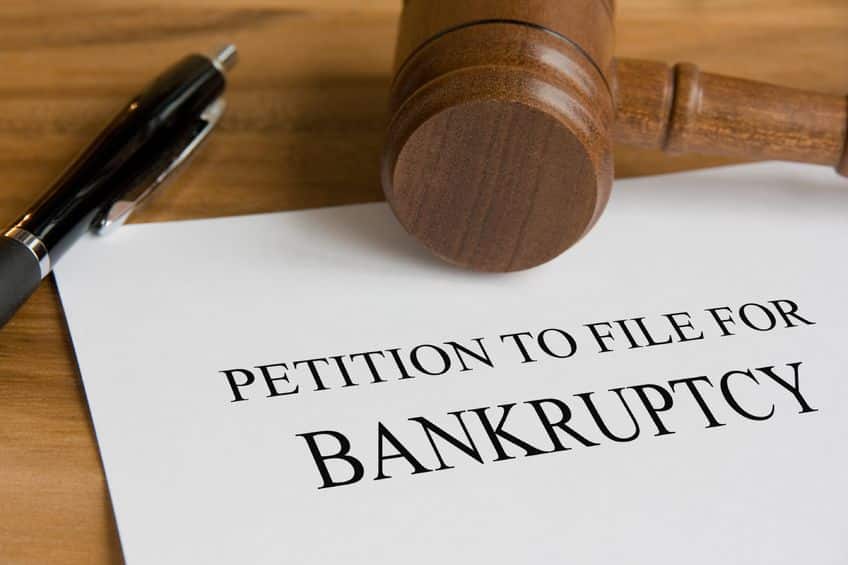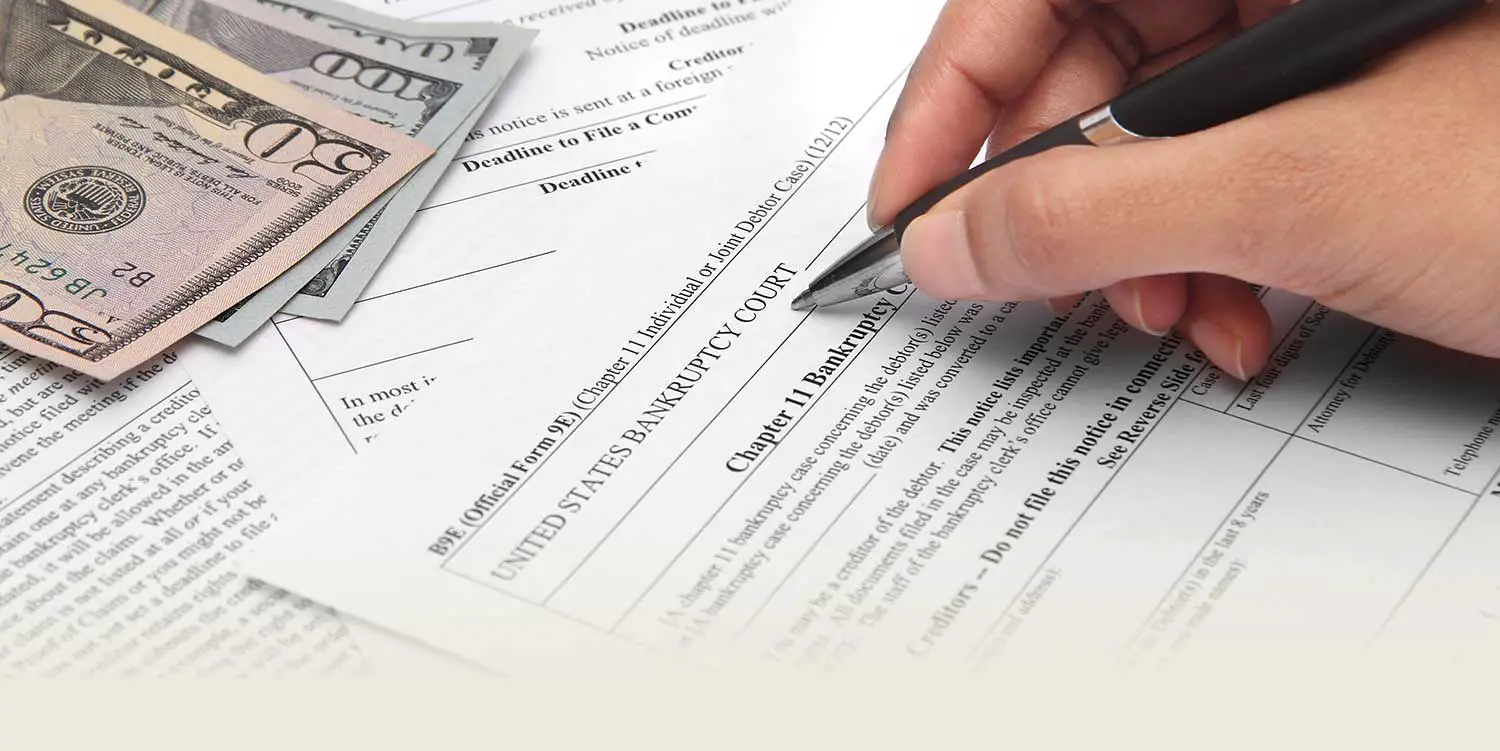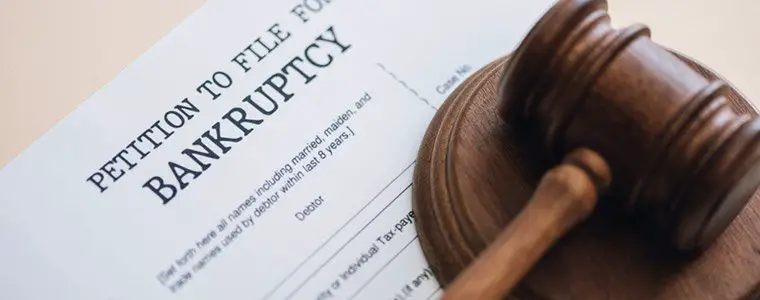Secret #: You Dont Need To Be Broke To File For Bankruptcy
You can be employed, have a bank account and own property up to certain limits as of the date your case is filed. Once your case is filed you can have anything you want and nobody the court or your creditors can touch it. In fact, a New York City man recently bought a winning lottery ticket after he filed his bankruptcy case and was able to keep all of his winnings.
Dealing With Your Car
When you file Chapter 7 bankruptcy in Connecticut, you will have to make sure you deal with your car as both, an asset, and, if you have a car loan, a debt. If you don’t have equity in your car because the loan balance is higher than what the car is worth at this point, then it’s not really an asset the trustee could reach. This is because if they sold the car, all of the proceeds from the sale would have to go towards the car loan, leaving nothing for unsecured debt. If your car is paid off, or you have equity because you are close to paying off the car loan, you can keep the car as long as the equity is less than the exemption amounts available for people filing bankruptcy in Connecticut. Keep in mind, however, that if you keep a car that still has a loan on it, you have to enter into a reaffirmation agreement, which means keeping the car loan as well. If your vehicle’s value is significantly less than what is owed on the loan , it may make sense to get out from under the loan by either redeeming the vehicle, or surrendering it to the creditor. Either option relieves you from the responsibility of having to pay off your car loan.
Learn The Basics Of Bankruptcy
Bankruptcy is a legal proceeding created to give people a fresh start after financial disasters. If you’ve explored your alternatives and can’t see a way out from under your debt, bankruptcy may be the right solution for you.
There are two main types of bankruptcy for individuals: Chapter 7 and Chapter 13. Chapter 7 can wipe out most of your debts in a matter of months in exchange for giving up all of your property that the bankruptcy law does not protect.
Chapter 13 takes three to five years. During that time, you repay some or all of your debts under a payment plan approved by the bankruptcy court. Its often used by people who are behind on mortgage payments and want to use Chapter 13 to catch up. Most folks who file for bankruptcy prefer to file for Chapter 7 if they qualify, because you can get out from under lots of debt in a matter of a few months.
To learn more, see How Chapter 7 Bankruptcy Works and How Chapter 13 Bankruptcy Works.
Don’t Miss: How Many Times Did Trump Claim Bankruptcy
Is There An Income Limit For Chapter 7 Bankruptcy
To automatically qualify for Chapter 7, your disposable income must be below the median level for your state. That number varies from state-to-state. If your disposable income exceeds the median in your state, you still may be able to qualify through a means test that includes looking at your income and reasonable expenses to see if you can get that number under the median income for your state.
How To Start Rebuilding Your Credit After A Bankruptcy

One of the most important things to remember about a bankruptcy is that it won’t linger on your credit reports forever. More good news: You can do a lot to start rebuilding your credit before the bankruptcy disappears from your credit reports. Here are six steps to take.
You May Like: What Type Of Bankruptcy Did Trump File
Attend Your 341 Meeting
The 341 meeting, also called a creditors’ meeting, sounds really scary, but it really is nothing to be worried about. It’s primarily an opportunity for your trustee to check your identity and ask you some questions that everyone filing bankruptcy in Connecticut has to answer. Creditors can appear and ask questions as well, but that hardly ever happens. Everyone who is in a Chapter 7 bankruptcy in Connecticut will have to attend their creditors meetingeither in New Haven or Hartford. In other words, even if your case is assigned to the Bridgeport division, you will have to make your way to New Haven for the creditors meeting when filing Chapter 7 in Connecticut. Preparing for the 341 meeting is relatively straightà forward, as the most important parts are showing up on time, and bringing a government issued picture ID and acceptable proof of your social security number. The questions you will be asked are about your life, specifically, your financial situation, so just take a deep breath and simply tell the truth. If you don’t understand a specific question the trustee is asking you, it is totally okay to ask them to clarify or rephrase it. They would much rather take a minute to do that, than get the wrong answer to a confusing question.à Ã
Whats The Difference Between Chapter 7 And Chapter 13 Bankruptcy
The major difference is time Chapter 7 takes 4-6 months Chapter 13 takes 3-5 years and money. You can have most, or all your unsecured debt discharged in Chapter 7 bankruptcy. In Chapter 13, some of your debt is forgiven, but only if you meet the conditions approved by the trustee and bankruptcy judge.
Don’t Miss: Can You Buy A Car After Filing Bankruptcy
The Two Kinds Of Bankruptcy Most Consumers Use
This website focuses on the two most common types of bankruptcy filed by individuals: Chapter 7 and Chapter 13. But heres a quick summary of the six types of bankruptcy most commonly filed under the bankruptcy code they get their names from the chapters where they appear in the code.
Chapter 7 Bankruptcy
- Chapter 7 lets individuals wipe out most kinds of debt in just a few months.
- You get to keep certain kinds of propertyfor example, at least some of the equity in your home, your car, clothing, personal items, and property that is essential to your profession. This type of property is called exempt property, and many Chapter 7 filers find that exemptions cover most of what they own.
- If you have nonexempt property, the bankruptcy trustee will sell it to repay your creditors as much as possible.
- To qualify for Chapter 7, you must pass the means test, showing that your income is less than the state median income for your family size.
- Most bankruptcies filed in the U.S. are Chapter 7 bankruptcies.
Chapter 13 Bankruptcy
Bankruptcy Exemptions By State
To figure out if all of your property is safe, start by doing an inventory of your property. Next, use online sites like Realtor.com, Zillow.com, KBB.com, Nada.com, and eBay for replacement value estimates. You can even use Craigslist or Facebook Marketplace, but strive for accuracy and make copies of comparable listings. The trustee might require a professional appraisal for unique items.
Finally, select the exemption system that covers the property you’d most like to keep if you have a choice between two .
Read Also: How To File For Bankruptcy In Indiana Without A Lawyer
Mail Documents To Your Trustee
The United States Trustee assigns a case trustee for every Chapter 7 bankruptcy in Connecticut. The trustee is an independent contractor for the Department of Justice, and it’s their job to make sure that creditors get what they are due, although more often than not, creditors don’t get anything. One of the documents the trustee needs to review is your federal income tax return from the prior year. Since that is not something that most folks filing bankruptcy in Connecticut want the world to see, it is not filed with the court. Instead, you have to mail a copy of your return to your trustee more than 7 days before your 341 meeting is scheduled to take place. You should also keep an eye out for any correspondence from your trustee after filing Chapter 7 in Connecticut, as there may be other documents they want to review before your 341 meeting.
Filing Bankruptcy In Connecticut
Youll notice from the table of the contents that we focus specifically on Chapter 7 and Chapter 13 bankruptcy. Why? Because these two types of bankruptcy are the most common bankruptcy in America . There are other types such as the Chapter 11 and Chapter 11 subchapter 5 bankruptcies, but these are far less common for consumers .
Chapter 7 bankruptcy is also known as the liquidation bankruptcy. Chapter 13 bankruptcy is also known as wage earners plan. We will cover these in greater detail
Read Also: Has United Airlines Filed For Bankruptcy
Protecting Property With Bankruptcy Exemptions
No one loses everything they own in bankruptcy. You’ll likely be able to keep some equity in a home, furnishings, an inexpensive car, and your retirement account. However, the specifics vary between states.
Every state has a set of exemption laws, but some states allow you to choose between your state exemptions and federal bankruptcy exemptions. And California is unique in that it has two sets of state exemptions from which a debtor can choose.
If you have a choice of exemption systems, you’ll select the one that best protects your property. You can’t mix and match between two exemption schemes, but if you choose the state exemptions, you can also use the federal nonbankruptcy exemptions.
What You Keep When Filing For Bankruptcy

Laws were created to help protect your property during bankruptcy, called bankruptcy exemptions however, exemptions vary depending on the process and the state.
Your state determines whether you must use your states exemptions or if you can choose the federal exemptions. If you live in one of the following states, you can choose the state or the federal bankruptcy exemptions:
- Alaska
- Washington
- Wisconsin
If you do not reside in one of these states, you must follow your states bankruptcy exemptions.
Common federal bankruptcy exemptions are listed below. Married couples filing jointly can double the exemption amount and all amounts are shown for cases filed after April 1, 2016, and cases filed after April 1, 2019. These numbers will be adjusted again on April 1, 2022.
Also Check: How Long To Keep Bankruptcy Papers
How We Make Money
The offers that appear on this site are from companies that compensate us. This compensation may impact how and where products appear on this site, including, for example, the order in which they may appear within the listing categories. But this compensation does not influence the information we publish, or the reviews that you see on this site. We do not include the universe of companies or financial offers that may be available to you.
At Bankrate we strive to help you make smarter financial decisions. While we adhere to stricteditorial integrity, this post may contain references to products from our partners. Heres an explanation forhow we make money.
The content on this page is accurate as of the posting date however, some of the offers mentioned may have expired.
Secret #: Your Spouse Does Not Have To File For Bankruptcy With You
Its not uncommon for one spouse to have a significant amount of debt in their name only. However, if spouses have debts they want to discharge that theyre both liable for, they should file together. Otherwise, the creditor will simply demand payment for the entire amount from the spouse who didnt file.
Also Check: How Many Bankruptcies Has Donald Trump Filed
Contact Us Now For A Free Consultation
We know you have reservations about bankruptcy. We know you are concerned about making the right decision. Coming to our website and considering bankruptcy is a courageous first step in dealing with your unmanageable debt.
If you are willing to overcome those reservations, then now is the time to take the next step a free, no-obligation, initial consultation with us. Call or email us to schedule an initial consultation. We can help you get your smile back today.
Are You Ready To Get Your Life Back
Theres no need to continue to struggle with unmanageable debt. Balbus Law Firm will give you the information you need to make the decision that is right for you and your family. We take the time to listen and understand your personal and business financial situation, to find the type of bankruptcy thats best for you and to guide you through every step of the bankruptcy process. We give you the same advice we give to members of our own family.
Recommended Reading: File Bankruptcy In Illinois
S In A Connecticut Bankruptcy
We all know that seeing the forest helps us recognize the trees, so it’s probably a good time to consider the significant steps you’ll take during your bankruptcy journey. Think of this checklist as a roadmap of sorts, but you can also use it to track your progress. The good news? You’ve already made headway on the first two items!
Collect Your Connecticut Bankruptcy Documents
Documents, like your income tax returns, your paycheck stubs, and a recent copy of your , are the primary tools you will use to tell the Bankruptcy Court your story. This is because they contain a lot of the information you need to complete your forms and, relying on this information allows you to make sure that you are not accidentally missing anything that could jeopardize the success of your Connecticut bankruptcy. If your debts are not mostly business debts, you should collect all the paycheck stubs you received in the last 7 months to properly calculate your income. If you are thinking about closing a bank account before filing, it’s recommended that you collect the bank statements for the account for at least the last 6 months before you do so. While you probably won’t need the bank statements when completing the forms necessary for filing bankruptcy in Connecticut, you may need them later.
You May Like: How To File Bankruptcy In Texas Without An Attorney
Find Out If You Qualify For Bankruptcy
To qualify for Chapter 7 bankruptcy, you must show that you dont have enough income to repay your creditors a reasonable amount. You can do this by:
- proving that your income is below the Connecticut median income for your household size, or
- comparing your income to expenses under a complex formula called the bankruptcy means test to show that you cant pay.
If your income is above the median income for your state and family size and the means test shows you have enough disposable income to make reasonable payments to your creditors, you may still qualify to file under Chapter 13. To qualify for chapter 13, your debt must be under the limit set by the bankruptcy code and you must be current on your tax filings for the last four years.
To take the means test, you can use our free means test calculator.
Doesnt Filing For Bankruptcy Ruin My Reputation And My Life

Not if it gets you out of debt. You might be able to run from creditors for a while, but eventually the stress of that overwhelms people. Bankruptcy lets you stop running and start over again. It may take a few years for you to get loans and obtain credit again, but at least youll have that opportunity. Bankruptcy is meant to give people who made financial mistakes a second chance. In todays turbulent economy, that is a good thing.
Recommended Reading: Can You Rent An Apartment After Filing For Bankruptcy
Filing Chapter 7 Bankruptcy
If youâre interested in filing bankruptcy but you have questions, know that you can reach out to a Connecticut bankruptcy attorney at any time. A lawyer can help you to determine whether filing for Chapter 7 bankruptcy or Chapter 13 bankruptcy is the best option for your circumstances, can answer any questions you have about bankruptcy law, and can help you prepare your bankruptcy forms. Most attorneys offer free consultations to prospective clients, so be sure to take advantage of this opportunity if working with an attorney interests you or you simply need to ask a legal professional some questions on a one-time basis. Upsolve can help you connect with a bankruptcy attorney in Bridgeport, Hartford, New Haven, and other locations throughout Connecticut. If you canât afford the services provided by a law firm, know that Upsolve provides free online resources for filers and may even be able to help you file your Chapter 7 bankruptcy case for free.